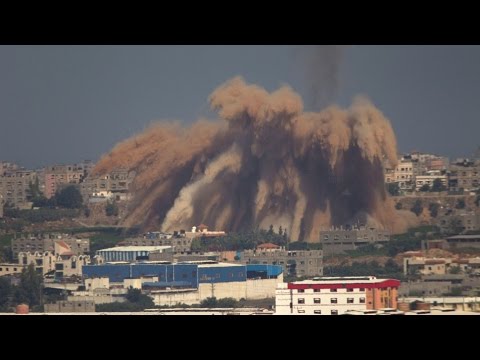GENEVA—The UN Human Rights Council met in Special Session on 23 July 2014, following the launch of the Israeli military operation, “Protective Edge,” directed at Gaza. In the three weeks since, Israel has killed more than 1,890 Palestinians, including at least 429 children and 196 women, in the intensive bombardment from the air, land and sea. The UN estimates that more than 73% of the civilian victims are civilians.
The fighting also has displaced 485,000 people and left 1.5 million without access to clean water. Up to 25% of Gaza’s population may now be forcibly displaced, of whom 270,000 are hosted in UNRWA shelters alone.
The Human Rights Council adopted a resolution establishing an international commission to investigate all violations of international humanitarian law and international human rights law in the occupied Palestinian territory, including East Jerusalem and the occupied Gaza Strip, in the context of military operations conducted since mid-June 2014. The inquiry is charged with establishing the facts and circumstances of any violations and identifying those responsible. The resolution says the purpose of the investigation is to end impunity, ensure those responsible are held to account, and to assist in protecting civilians.
In its resolution, the Council repeated its request, which the General Assembly also has repeated since 2009, that the depositary government of Switzerland convene the High Contracting Parties to the Fourth Geneva Convention to “ensure respect,” for the treaty in accordance with Article 1 common to the four Geneva Conventions. Switzerland has failed to honor that request until this date.
Speaking at the Special Session, UN High Commissioner for Human Rights Navi Pillay, cited these figures and also described the destruction of hundreds of homes and other civilian buildings.
UN High Commissioner for Human Rights Navi Pillay condemned the indiscriminate firing of rockets by Hamas and other armed groups and the location of military assets in densely populated areas. She reported that two Israeli civilians, one Thai national, and 64 Israeli soldiers have been killed during the military operations, while other reports cite between 17 and 32 others injured.
Mme Pillay stated that international law is clear: “the actions of one party do not absolve the other party of the need to respect its obligations under international law.” She also stressed that “Civilian homes are not legitimate targets, unless they are being used for, or contribute to, military purposes at the time in question.”
The High Commissioner was unequivocal that civilians should not be targeted. “It is imperative that Israel, Hamas and all Palestinian armed groups strictly abide by applicable norms of international humanitarian law and international human rights law.” Citing examples where it appeared civilian homes had been targeted; Pillay said there is “a strong possibility that international humanitarian law has been violated, in a manner that could amount to war crimes.”
Kyung-wha Kang, the Assistant Secretary-General of the UN Office for the Coordination of Humanitarian Affairs, reported on the Israeli attacks on medical facilities and staff, pointing out that “such action is completely unacceptable and is a flagrant violation of international law.”
Kang described the “terror and trauma” of civilians who are given warnings to leave their homes but have no safe place to go. She pointed out that the Israeli army had declared 44% of Gaza a “no-go zone.”
While negotiations for a ceasefire proceed, Kang called for a pause in the conflict to allow aid workers to reach people desperate for help. Humanitarian workers must be permitted, she said, to mount search and rescue operations, to assist in repair of essential infrastructure, to assist the wounded and retrieve bodies.
Pillay also referred to the “crippling effects of the Israeli blockade,” that has left Gazans with very little water, fuel and electricity, as well as the medicines that are in critically short supply. The High Commissioner reiterated her call for the blockade to be lifted once and for all.
The Special Rapporteur on the situation of human rights in the Palestinian territories occupied since 1967, Makarim Wibisono issued a weak statement on behalf of the Coordination Committee of the Special Procedures, nonetheless urging respect for international law and a prompt, independent investigation of alleged breaches.
“In Israel and Palestine, the politics of conflict, peace and security are constantly leading to the downgrading, or setting aside, of the importance of binding international human rights law and international humanitarian law. International law is not negotiable. No individual or state can be considered exempt, if they violate the law,” Pillay said.
Describing the conflict as “dreadful and interminable”, the High Commissioner asked, ”What must we finally do to move beyond a ceasefire that will inevitably be broken again in two or three years?” The answer, or at least a first step, Pillay said, is accountability, “ensuring that the cycle of human rights violations and impunity is brought to an end.”
However, the resolution did not refer to third party responsibility in the alleged violations and grave breaches. Nonetheless, the United States remained the sole delegation voting against the resolution.
The independent, international commission of inquiry will report to the Council at its 28th session in March 2015.
More information and links to statements at the special session can be found here.
For statistical updates on damage, casualties and the general humanitarian situation in Gaza, read here.














